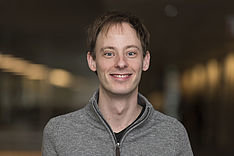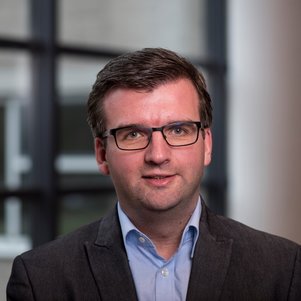Researchers
Christine Milchram is PhD researcher in the department of Values, Technology and Innovation at the Faculty of Technology, Policy and Management of Delft University of Technology. She studied International Business at the University of Vienna (MSc, graduation 2012). Her research focuses on the identification of innovative organizational models of smart energy systems in support of moral values, thereby enhancing their moral acceptability and social acceptance. This is done by normative assessment based on the capability approach and case study research. The case studies are drawn from the City of Amsterdam, through the Institute for Advanced Metropolitan Solutions (AMS). Before she started her PhD, Christine worked as a strategy consultant in the field of sustainability, focusing on the utilities industry, smart city, and smart mobility.
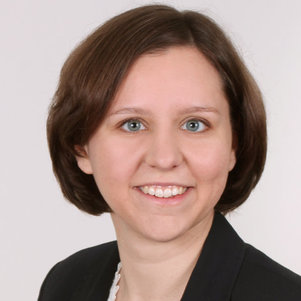
Christine Milchram
Tristan de Wildt is PhD researcher in the department of Engineering Systems and Services at the Faculty of Technology, Policy and Management of Delft University of Technology. He studied Systems Engineering, Policy Analysis and Management, and specialized into energy systems (2014). His research focuses on the identification of robust smart energy systems designs as a result of the uncertain, dynamic and coevolutive character of moral values. This is done by using Agent-based modelling and the Scenario Discovery technique. Before he started his PhD, Tristan worked as a management consultant within the CWE Flow-Based Market Coupling project.
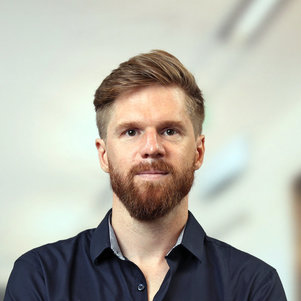
Tristan de Wildt
Dr.ir. Emile Chappin is an Assistant Professor, Energy and Industry, Faculty of Technology, Policy and Management, TU Delft and a senior research fellow in the Wuppertal Institute for Energy, Climate and Environment. He specializes in agent-based modeling with a focus on energy and sustainability, carbon and renewables policies, energy markets, and adaptation to climate change. Dr. Chappin focuses on modeling energy transition from the perspective of complex socio-technical systems and uses (agent-based) models and serious games to enable the support of policy interventions. With collaborative, multidisciplinary research work, as a promotor of open source software, and active inside and outside the scientific community, he feeds the scientific and societal debate on energy transition. Dr. Chappin graduated in Systems Engineering, Policy Analysis and Management at TU Delft. He obtained his PhD from Delft University of Technology – ”Simulating Energy Transitions”.
Dr. Geerten van de Kaa is Assistant Professor of Strategy and Innovation at Delft University of Technology. He holds a PhD from Rotterdam School of Management, Erasmus University. His research interests include platform wars for complex systems, smart and networked governance, and responsible innovation. In 2011, he was a visiting scholar at Berlin University of Technology. He has published in high ranking international journals including Organization Studies, IEEE Transactions on Engineering Management, Technological Forecasting and Social Change, Technology Analysis & Strategic Management, Renewable and Sustainable Energy Reviews and Computer Standards & Interfaces. In 2009, he won the best paper award at the Standardization and Innovation in Information Technology conference and in 2010 he won the NNK best doctoral dissertation award. He teaches courses in the strategic management of technological innovation.
Prof. dr. Rolf Künneke is professor in Economics of Infrastructures in the department of Values, Technology and Innovation of the faculty of Technology, Policy and Management of Delft University of Technology. He holds a masters degree in economics of the University of Dortmund (Germany). He received his PhD degree at the University of Twente (The Netherlands). He is a research associate at EPFL Lausanne at the chair of Network Industry Management and e-governance. He was twice visiting professor at the University of Paris 1 (Sorbonne-Pantheon). Dr. Künneke has a strong research record in the field of restructuring of the energy sector, both electricity and gas. Being an institutional economist he is especially interested in the regulation and organization of the energy sector. In his work he relates the technological characteristics of infrastructure industries to the regulation of these sectors in order to meet societal expectations with respect to the performance of these essential facilities. More recently he got involved in research on social acceptance and acceptability of innovations in the energy sector. Together with Dr. Rafaela Hillerbrand and others he conducted a pilot study on the social acceptability of offshore wind.
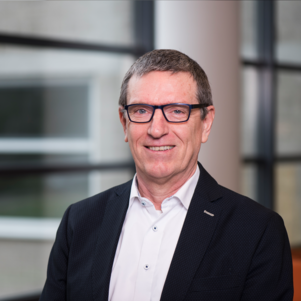
Rolf Künneke
Prof.dr.ir. Paulien Herder is professor in Engineering Systems Design in Energy and Industry and head of the Energy & Industry group and head of the Engineering Systems and Services department at the Faculty of Technology, Policy and Management, Delft University of Technology. She obtained her MSc in Chemical Engineering and her PhD in the Technical Sciences, both at Delft University of Technology. Her research focuses on the design and operation of socio-technological systems, or infrastructures, aligning technological design and institutional design. Agent-based modelling and simulation is one of the key modelling paradigms that is employed in her group. The operation and asset management of infrastructures and grids is also an integral part of her research. In order to achieve a true multidisciplinary approach to these questions, she collaborates through the PowerWeb initiative at Delft, where mathematicians, information scientists, electrical engineers, economists and social scientists work collaboratively on smart grids projects and challenges. Paulien is the Chair of the Delft Energy Initiative, in which over 700 researchers in energy join forces to face the research challenges in energy, and Principal Investigator for Energy in AMS. She is Editor-in-Chief of the Springer OpenAccess Journal Infrastructure Complexity. Paulien was a visiting professor at Carnegie Mellon University (Pittsburgh, PA) and the Massachusetts Institute of Technology (Cambridge, MA).
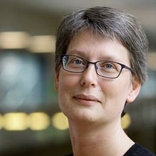
Paulien Herder
Prof. Dr. Dr. Rafaela Hillerbrand is professor for philosophy of science and technology at Karlsruhe Institute of Technology. Before joining KIT, Rafaela Hillerbrand worked as an associate professor at TU Delft. She holds a PhD both in physics as well as in philosophy and her work bridges the humanities and the engineering and natural sciences. One of her research foci is the ethics of energy supply and demand. Before joining Delft in 2012, she was senior research fellow at the University of Oxford (2006-2008) and head of the research group eet-ethics for energy technology at RWTH Aachen University (2009-2012) where she started extensive industry contacts (energy and chemical industry) in order to foster ethical sustainable innovations by, e.g. improving (S)LCA, (social) life cycle assessment. This cumulated in a successful research project on the social acceptability of offshore wind that was conducted jointly with Rolf Künneke and incorporated industry as well as university partners. In 2011, she also had the chance to advise the ethics commission for safe energy supply under Klaus Töpfer's guidance that was set up in reaction to the accidents in Fukushima.
